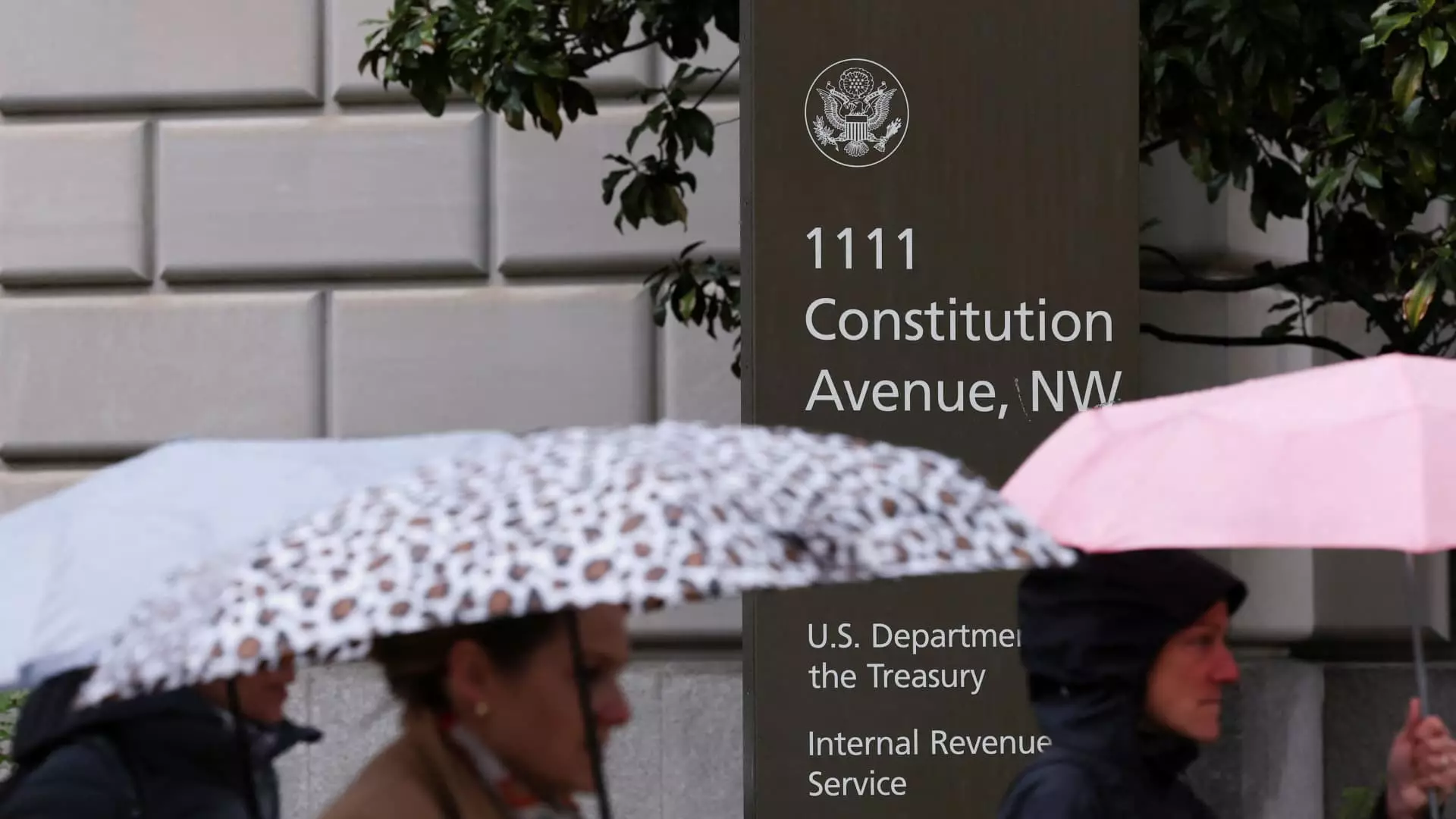In recent times, the Internal Revenue Service (IRS) has seemed more like a beleaguered shell of its former self than the robust agency it once was. With a staggering $80 billion infusion of funds from Congress in 2024, the expectation was that the IRS would emerge as a modern, high-tech enforcer of tax compliance. Instead, a series of miscalculations and short-sighted decisions have led to unprecedented staff reductions, questioning the agency’s ability to hold wealthy tax returns accountable. Rather than fortifying its ranks, the IRS has opted to pull the rug out from under recently hired agents, like Wesley Stanovsek. His firing—amid a backdrop of complex cases concerning S-corps, trusts, and partnerships—epitomizes a systemic failure that will likely reverberate for years to come.
The Aftermath of Dismantlement
Stanovsek’s abrupt departure wasn’t an isolated incident; it symbolizes a broader strategy that could potentially forsake tax revenues in the billions. As the IRS sheds about a third of its employees through firings and buyouts, it leaves behind a landscape riddled with unresolved cases. High-net-worth taxpayers, who once faced intense scrutiny, now find themselves in an environment that seemingly applies the brakes on audits. Kathleen Pakenham, a partner at Vinson & Elkins, encapsulates the chaos within the agency: “The agency is like a zombie right now.” This encapsulation is chilling, as it underscores an entire division lacking effective leadership or strategic purpose.
For wealthy taxpayers and their accountants, this creates a perilous environment. When coupled with the reality that many audits may go dark due to the limitations of the statute of limitations clouding time-sensitive assessments, it paints a grim picture. No longer must high earners face the music as the IRS becomes increasingly ineffectual; they may now be tempted to tread the fine line of legality, engaging in aggressive tax-planning strategies—strategies that may very well escape scrutiny amidst dwindling IRS personnel.
Creative Tax Evasion: A Dangerous Trend
With the IRS dismantling its investigative operations, we risk witnessing a resurgence of dubious tax shelters and elaborate schemes. History tells us that budget cuts have previously led to convoluted tax structures that, in hindsight, are exposed as illegal. A Yale Budget Lab study reveals that if the agency continues on this path, tax revenues could plummet by a staggering $160 billion over the next decade. Reports estimating a loss of over $500 billion in taxes just within this fiscal year create a pressing urgency to reassess our governance of taxation.
Former IRS agents and tax attorneys highlight the peril inherent in an under-staffed agency, particularly in its tax enforcement arms. Jack McCumber shares a poignant anecdote from his time at the Large Business and International unit, where he saw his capacity to investigate substantial tax questions evaporate due to budget cuts. With the ability to verify compliance increasingly compromised, we are facilitating a perverse incentive for wealthy individuals to engage in high-stakes tax evasion.
Now, without a capable workforce, taxpayers could find themselves grappling with unresolved audits stalling critical transactions. Robert Romashko’s experiences with the IRS demonstrate the absurdity of this new era. The IRS’s ability to respond has become nearly non-existent, leaving taxpayers stuck in bureaucratic limbo—victims of a broken system where business deals hang in uncertainty due to the agency’s incompetence.
AI: The Double-Edged Sword of Tax Compliance
While Treasury Secretary Scott Bessent argues that the IRS’s foray into artificial intelligence (AI) will evolve its capabilities, the skepticism around such assertions merits attention. AI may enhance the agency’s ability to flag suspicious returns, but this technology is not the magic bullet for effective tax administration. There is a wrongly conceived belief that AI could replace skilled auditors who rely on nuanced interpretations of tax law.
Pakenham wisely cautions that, while AI can identify anomalies with precision akin to “X-ray vision,” the subtleties of human reasoning and inquiry are irreplaceable. Tax law is complex and textured—requiring the judicious reasoning of seasoned auditors who can ask follow-up questions that yield information far beyond raw data. The danger here lies in allowing an untrained algorithm to determine the fate of a taxpayer’s financial standing without the intervention of a human capable of nuanced understanding.
As we tread into this uncertain future, one must ponder: are we prepared to forfeit adequate tax collection for the sake of immediate cost-cutting? In our rush to embrace technological advancements, let us not forget the essential human element that fosters accountability in taxation. To do so would not just be shortsighted; it could undermine an entire framework built upon the principle that all taxpayers should—and must—pay their fair share.

